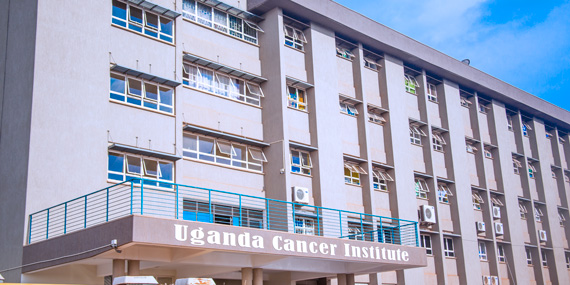Uganda Cancer Institute (UCI) is set to start conducting bone marrow transplant treatment for children who present with blood cancers, the executive director, Dr Jackson Orem has revealed.
He said this while speaking during a pre-conference meeting for an upcoming International Society of Pediatric Oncology conference where experts from 50 African countries will gather in Uganda to discuss among others advances in treatment for childhood cancers.
Orem said the bone marrow treatment will start early next year as they plan to open as a regional center of excellence for oncology in December.
“We’re now going to bring new services and bone transplant being one of them. But already, we’re already implementing targeted therapy which is a new form of treatment. This means that despite us being in a developing country, we’re not taking a backseat and saying that newer treatment should take 20-30 years before they come here, before our patients begin to experience them. We want to be at the forefront and that is the essence of having research-led care because all these things are coming out of the research work that is being done.
A bone marrow transplant involves taking cells that are normally found in the bone marrow called stem cells, filtering those cells, and giving them back to the patient or sometimes donated to the patient by another person. Once this is successfully done, a patient is cured of cancer.
In Uganda, Dr Joyce Balagadde Kambugu, a childhood cancer specialist says this treatment will help them save more children since leukemia is among the top four cancers diagnosed at the institute.
So far, she says the cure rate for children who present with the commonest cancer such that include leukemia, cancer of the muscles, Wilms’ tumor and lymphomas is just 50 per cent, yet childhood cancers are a 90 per cent curable if a child presents early to care and gets appropriate treatment.
In addition to this treatment, Kambugu explains that they have already introduced targeted treatment where children no longer have to endure the old type of chemotherapy that kills both normal and sick cells especially for leukemia and cancer of the lymph nodes.
“Uganda Cancer Institute is providing what we call targeted therapy, so instead of the anti-cancer drugs being infused into your body and they kill all the cells including the cancer cells, targeted therapy specifically identifies unique features on a specific cancer cells. So it is like missiles, the homing missiles. When the drug is given it goes directly for the cancer cells that it is supposed to go for and spares the surrounding cells. Targeted therapy is at the centre of that and at Uganda Cancer Institute we’re now able to offer targeted therapy for some of the cancer,” added Kambugu.
Dr Kambugu who is also the continental president of the International Society of Pediatric Oncology (SIOP Africa) says the advances Uganda has made in cancer care with very limited resources and the fact that they quickly adopt treatment innovations is partly the reason as to why they are hosting the conference to share experiences with colleagues on the continent and see what can be adopted here or what others can borrow from Uganda.
Every year however, Uganda sees between 600 and 700 children presenting to UCI or Mbarara hospital with cancer and she says these represent just 25 per cent of children who they predict to be battling the disease.











